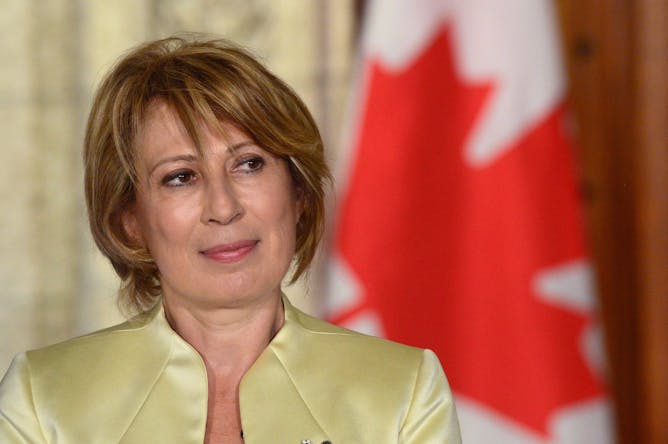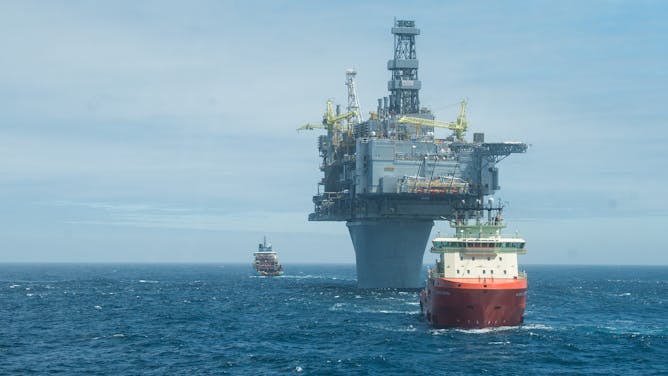|
There was a collective sigh of relief among officials in Canada’s steel and aluminum industries when Donald Trump announced last week that Canada and Mexico would be - at least for the time being - exempt from his plan to bring in stiff tariffs. Today in The Conversation Canada, Christopher Sands of the Center for Canadian Studies at Johns Hopkins University explains the history of how presidents as far back as Lyndon Johnson have dealt with Canada as a trading partner.
Josh Cronmiller, Kelechi Nwanekezie and Magali F. Nehemy of the University of Saskatchewan look at the relatively new government positions of “chief scientist” that have been created by the federal government and several provinces and whether they will have a significant impact on scientific policy.
Calgary is Canada’s oil capital, but Andrew Sudmant and Andy Gouldson of the University of Leeds tell us about the city’s plan to reduce its greenhouse gas emissions by 80 per cent by 2050. Their analysis in conjunction with the University of Calgary shows “meeting this target is not only possible, but can be achieved in ways that yield substantial and broad-based economic, social and environmental benefits.”
And finally, Greg Naterer, the dean of the faculty of engineering and applied science at Memorial University, writes about “one of the most remarkable offshore wonders of the world and among the most impressive engineering accomplishments in Canada” - the recently completed Hebron oil structure.
Regards,
|

Former U.S. president Richard Nixon is seen here with Pierre Trudeau in Ottawa in 1972. Nixon was bitterly opposed to Canada’s Auto Pact moves 50 years ago, saying Canada had cheated at the expense of American jobs and investment. He refused calls to exempt Canada from an import surcharge.
(THE CANADIAN PRESS)
Christopher Sands, Johns Hopkins University
U.S. President Donald Trump has exempted Canada, for now, from hefty tariffs on steel. An increase in defence spending would likely stand Canada in greater stead with the president.
|

Mona Nemer was named as Canada’s new Chief Science Advisor on Sept. 26, 2017.
THE CANADIAN PRESS/Sean Kilpatrick
Josh Cronmiller, University of Saskatchewan; Kelechi Nwanekezie, University of Saskatchewan; Magali F. Nehemy, University of Saskatchewan
Science advisers can make important contributions to environmental policy and decision making by government. But we should expect even more.
|

(Shutterstock)
Andrew Sudmant, University of Leeds; Andy Gouldson, University of Leeds
Canada has committed to cutting GHG emissions 30 per cent by 2030 from 2005 levels. Can Canada's oil capital lead the charge? New research shows it's within reach with bold actions on several fronts.
|

The Hebron is seen here being towed to open water in 2017.
(Exxon Mobil)
Greg Naterer, Memorial University of Newfoundland
The massive Hebron oil platform off the coast of Newfoundland is an engineering marvel. Here's how it was constructed.
|
Health + Medicine
|
-
Lise Korsten, University of Pretoria
The bacterial pathogen that is responsible for listeriosis can survive under even the toughest conditions.
|
|
Politics
|
-
Kim Beazley, University of Western Australia; L Gordon Flake, University of Western Australia
It is not yet midnight, but as the crisis deepens, the diplomatic and military options get more and more complex. And the possibility of war is now very real.
|
|
Science + Technology
|
-
Matthew Osborne, The Ohio State University; Kevin Nowland, The Ohio State University
Can a computer model correctly predict the results of the first round in this year's tournament? These mathematicians think so.
|
|